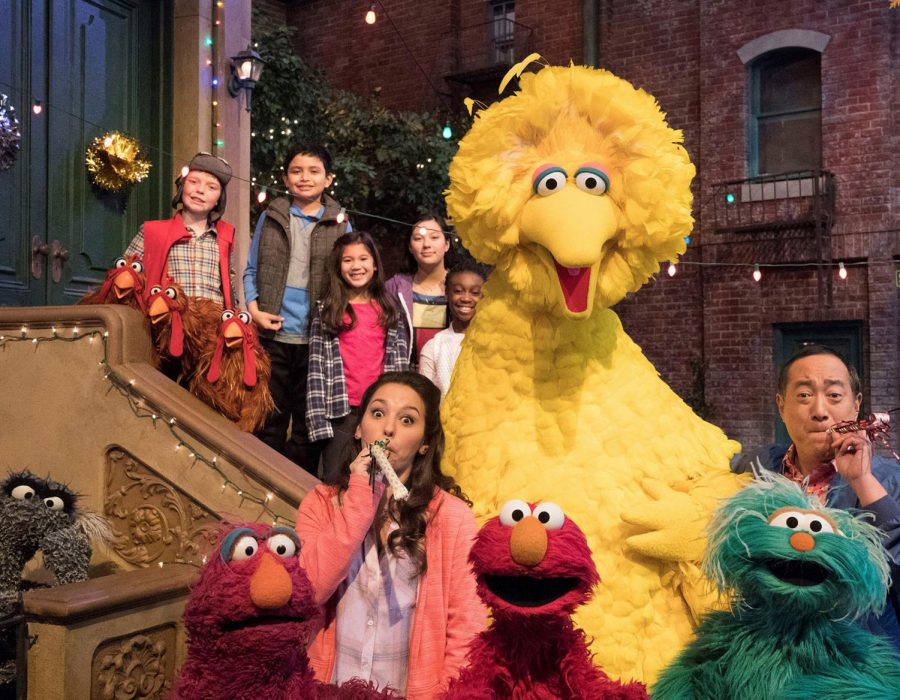Are TV shows effective teachers?
Opinion Columnist Emerson Slomka explains the pros and cons of educational television and the role it plays in developing minds. He says that this programming is a good supplement, rather than a primary source of education.
Oct 14, 2019
It seems like the perfect innovation: a device that provides entertaining, interactive education to your child 24/7 free of cost (with the exception of the monthly cable bill, of course), allowing you to safely plant them in front of the screen while you work or savor your free time. While early TV was often regarded as mindless entertainment, this would change as a new dimension of children’s media emerged in 1969 With the creation of the instant hit Sesame Street came a flood of innovative new shows for children that not only sought to entertain, but also to educate. While productive in theory, many parents debate whether or not this “hands-free” approach to learning is actually helping their children to grasp preschool concepts, or if it’s simply neglectful. Does educational television actually help children learn, or is it too good to be true?
The first benefit of educational television comes in the form of accessibility. A child coming from a financially-strained family may not be able to attend preschool, but can easily turn on the TV to have access to similar knowledge they’d be expected to learn in preschool. This is, of course, where educational programming has an advantage: it’s accessible and reliable, providing an otherwise uneducated child with the information they’ll need in a fun and interactive way.
Another major benefit deals with how vast and widespread television is. Naturally, education on certain topics differs between locations; a preschooler from San Francisco is going to learn about different societal issues and norms than a preschooler from small-town Georgia. My own mother, for example, grew up in a small, predominantly-white village in rural Illinois. The first time she was exposed to non-white individuals was through the media—specifically, Sesame Street, which was one of the first children’s shows to feature a racially-diverse cast. This was such a culture shock to some that the state of Mississippi actually attempted to ban Sesame Street from airing in the state, fearing that it would confuse children with its fully-integrated cast.
Racial diversity isn’t the only area where Sesame Street has proven to be a positive influence– also featured is a segment about breastfeeding, a cast member with Down Syndrome, a Muppet whose father is incarcerated, a song empowering natural hair, and even an episode that tackles the sensitive topic of death. Introducing these topics gives parents a great opportunity to discuss them with their child, giving the topics a preface and reason to be discussed. Though reading, writing and math are integral parts of education, it’s imperative that children learn about the world around them and the people within it.
Though it’s clear that TV offers an accessible education with different perspectives than a preschool classroom, what are the shortcomings of educational TV? Unlike a teacher, who can stop, repeat and answer questions, the TV can only go forward, at a pace which may not be ideal for all children. The child cannot ask questions on puzzling topics, which can lead them to either not grasp—or worse—misunderstand a lesson. The child cannot learn from experiences from the TV like they can at a preschool, where many lessons and ideas are conveyed through the senses. Another major issue boils down to the unhealthy nature of watching TV; when a child learns in a school environment, play and physical activity are encouraged, while excessive TV watching can cause a child to become lethargic.
So, now that we know the pros and cons of educational TV, what can we take from this? Educational TV is most effective when used as a supplement, rather than the primary source, of education. These shows can spark a conversation between a parent and child and provide an opportunity to teach them with a hands-on approach. This approach is supported by the creators of Sesame Street, who decided to air their episode about death on Thanksgiving, when children would be surrounded by adults. In the end, it’s important that we realize the importance of discussing things with our children and guiding them through the world of education by hand, rather than by screen.









Elaina D'Agostino • Jan 20, 2023 at 9:43 pm
I agree that one advantage of watching TV shows is that it gives children the opportunity to learn and gather information. But this isn’t just for kids. Adults can also benefit from this by watching shows about topics that they might not be able to focus much on while they were studying. In my case, that’s healthcare.